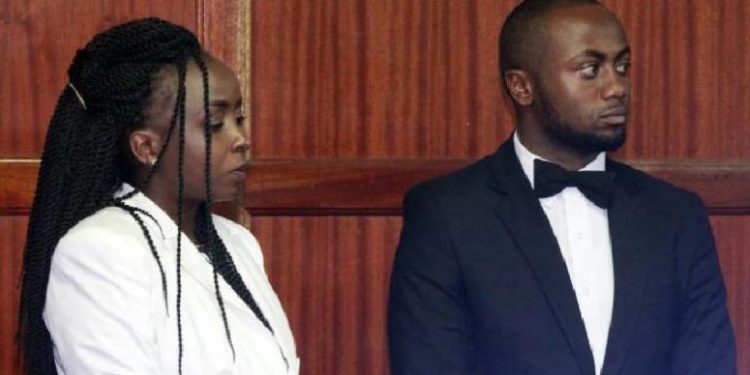Nzioka added that despite Jowie’s initial denial of any acquaintance with the deceased, the court determined otherwise. Testimony from Kimani’s brother, along with cell phone records, established Jowie’s prior knowledge of the victim.
It was revealed that Jowie and Monica Kimani had shared a class in 2002, studying hotel and beverage management together, contradicting Jowie’s claims of unfamiliarity with the deceased.
The court further endorsed the prosecution’s assertion that Jowie was the last person seen with the deceased before her demise, invoking the Doctrine of Last Seen. According to this doctrine, the individual last seen with the victim is presumed responsible for their death unless proven otherwise.
Additionally, Justice Nzioka concurred with the prosecution’s allegations that Jowie employed a firearm to intimidate Monica Kimani before her demise. Forensic evidence also linked Jowie to the crime, as bloodstains found on his shorts were identified as belonging to the deceased.
In conclusion, Jowie, has been convicted of the murder of Monica Kimani, with the court finding him culpable based on various pieces of evidence presented by the prosecution.


















